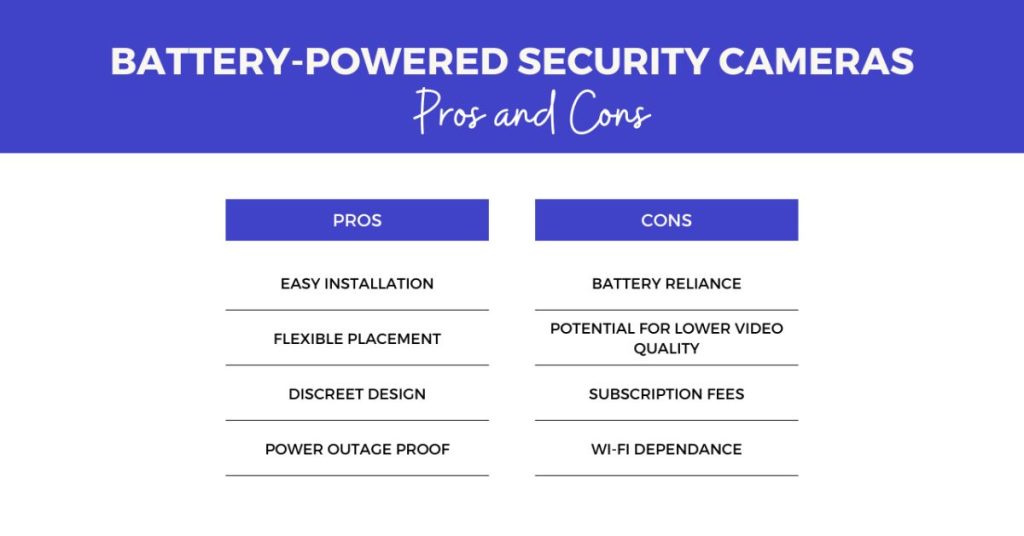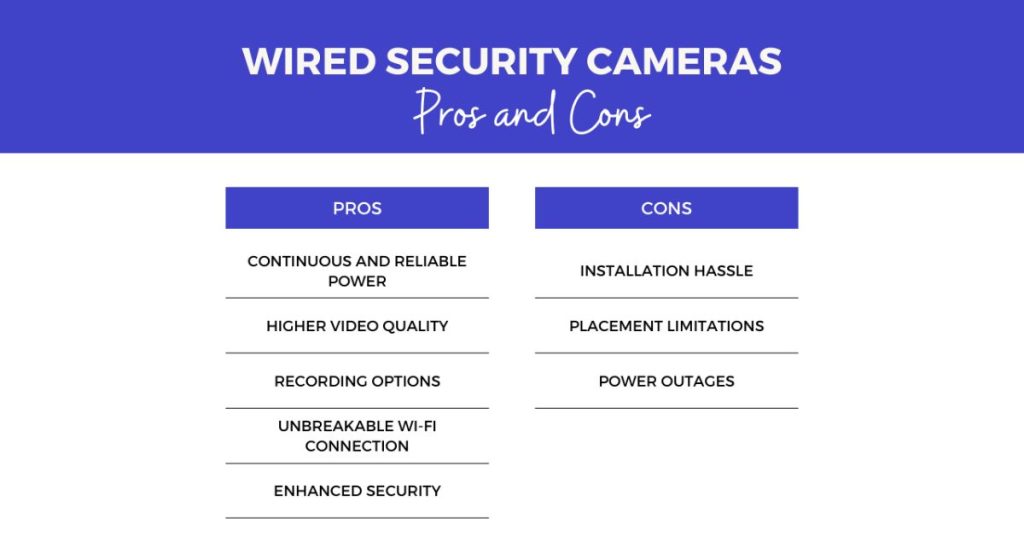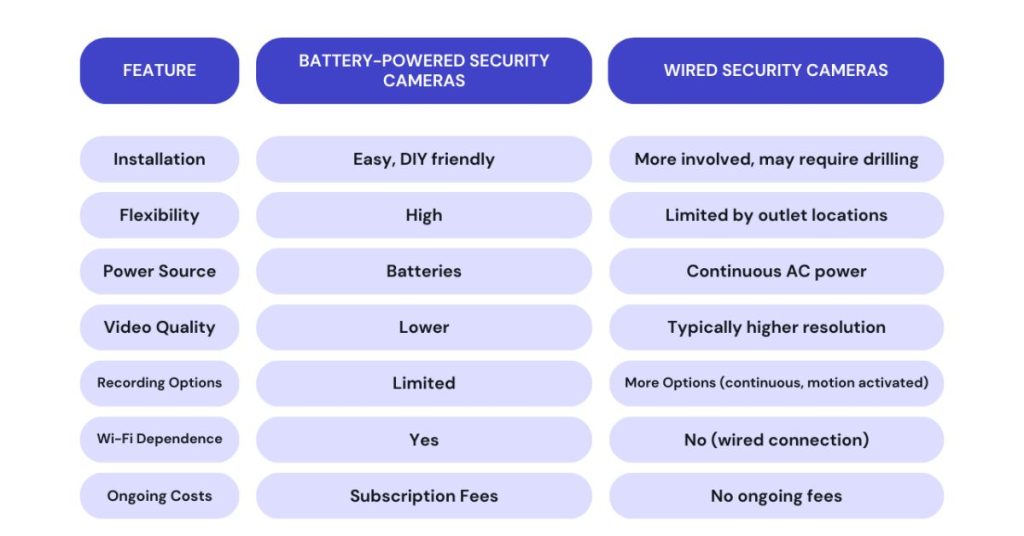Are you deciding between the convenience of battery-powered home security cameras and the dependability of wired ones?
Choosing the right security camera system for your needs can be difficult, with so many options available.
It's no secret that everyone places great importance on maintaining the safety and security of their homes. A Herald investigation found that New Zealand has approximately one camera for every twelve individuals.
The choice of home security systems continues to grow along with technology. Among the many options, two main potentials appear: battery-powered and wired cameras. Every option has its own set of pros and cons, making the decision-making process even more difficult.
This blog gives you the information you need to make an informed decision. Whether you're a tech-savvy homeowner or just starting to explore your choices, we've got you covered.
Battery-powered security cameras are a popular and convenient option for homeowners seeking versatile security options that are easy to install.
Here are the Pros and Cons of Battery-Powered Security Cameras:

There is no need to make holes or run cables. Battery-powered cameras are often mounted using adhesive tape or screws, making them simple to set up, even for beginner DIY enthusiasts.
Need to constantly keep an eye on that side garage door, but there's no outlet nearby? Not a problem! Battery-powered cameras are cordless, so you can put them almost anywhere you need them.
Since they do not require cables, battery-powered cameras are typically smaller and less intrusive than wired alternatives. This can be beneficial if you're seeking a more discreet security solution.
Power Outage Proof (almost): Unlike wired cameras, battery-powered cameras will continue to operate even if the power cuts out in your home (as long as the batteries are charged!). This could provide you with peace of mind knowing that you will have a certain level of security during a power outage.
The main drawback is the reliance on battery changes. Depending on the camera type, battery life might last from a few weeks to several months. Just be prepared to replace those batteries when the time comes.
Video quality could be compromised as a consequence of battery-powered cameras' concentration on battery life. This means that your recordings could be less satisfactory in resolution than those from wired cameras.
Many battery-powered camera systems require a monthly subscription to access services. These costs might range from $10 to $30 per month.
Since battery-powered cameras transmit via Wi-Fi, they could be sensitive to signal interference or could struggle to obtain a wifi range across your house. This could result in failed connections or sluggish footage.
For homeowners who prioritise stability and performance, wired security cameras offer a reliable and continuous surveillance solution.
Here are the Pros and Cons of Wired Security Cameras:

Wired cameras get their power directly from your home's electrical system, avoiding the need for battery changes. This leads to uninterrupted recording and constant video quality.
When connected to a reliable electrical source, wired cameras can produce higher-quality video, often offering crisper footage for more accurate identification and evidence collection.
Wired cameras usually provide a wider range of recording options, including continuous recording, motion-activated recording, intruder notification alerts and verbal warning messages. This allows you to customise the system to your requirements.
Wired cameras connect directly to your network router, reducing the possibility of Wi-Fi signal interference. This allows for a solid connection and dependable video transmission.
Wired cameras are often thought to be more secure than battery-powered models. They are less susceptible to hacking attempts because they don't rely on Wi-Fi for communication (though no system is 100% secure).
Installing a wired security camera system is more involved than installing a battery-powered one. Some homeowners could be put off by the thought of having to drill holes and run wired connections.
Wired cameras are connected to their power source, limiting their placement flexibility. When setting up your camera system, you should consider the location of your existing electrical outlets.
While wired cameras provide continuous power, they will be rendered inoperable during a power outage unless you have an Uninterruptible Power Supply (UPS) system in place. A UPS serves as a battery backup for your devices, securing your cameras.
Also read: How Many CCTV Cameras Do I Need for My Home?
Here's a quick comparison to help you visualize the key differences:

Let’s go over some frequently asked questions from homeowners about battery-powered and wired security cameras.
Yes, many battery-powered cameras are intended for outside use and can tolerate a variety of weather situations. However, to ensure longevity and dependability, consult the manufacturer's standards.
Battery life varies depending on several factors, including the camera model, video resolution settings, and frequency of motion detection. Battery life can vary from a few weeks up to several months.
Yes, many homeowners choose a combination of battery-powered and wired cameras to reap the benefits of both types. For example, you can use battery-powered cameras for portability in outdoor locations and tethered cameras for continuous monitoring indoors.
We hope this blog helped you understand the differences between battery-powered and wired home security cameras.
In the end, the best option for your home will be based on your own needs and preferences. Whether you value ease of installation, dependability, or video quality, there's a camera for you.
Ready to take the next step in securing your home? Contact us today at 800 42 55 76 for personalised recommendations and expert advice on choosing the right security cameras for your needs.




